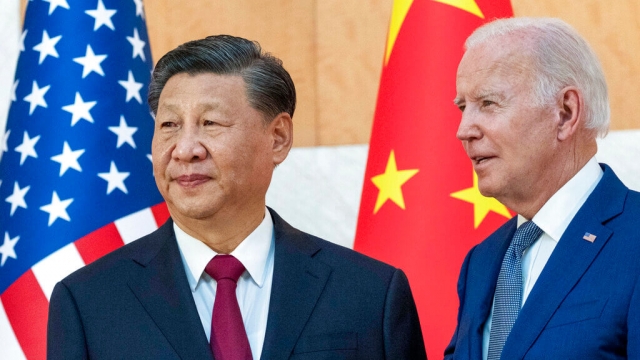Just as state leaders call for a cooling of tensions between the U.S. and China, it seems the temperature only continues to climb.
In mid-June, Secretary of State Anthony Blinken visited President Xi Jinping to discuss relations and conflict aversion. But soon after, President Biden made remarks at a campaign reception saying that President Xi was upset about the spy balloon shot down in February as a "great embarrassment for dictators, when they didn't know what happened."
The spokesperson for the Chinese Foreign Ministry called the comment "Extremely absurd" and "irresponsible." It is still unclear what the impact of the comments will be.
The war of words is not the only recent flashpoint between the two superpowers since the high-profile spy balloon incident earlier this year. In April, a federal court in New York brought charges against two men allegedly connected to an illegal overseas police station operating in Lower Manhattan.
The Department of Justice says it was operated by a provincial branch of the Ministry of Public Security (MPS) of the People's Republic of China.
The U.S. Attorney for the Eastern District of New York told reporters, "Just imagine the NYPD opening an undeclared secret police station in Beijing. It would be unthinkable."
SEE MORE: Congress leaders probe CIA, State Department on China's Cuba spy base
There are over a hundred so-called police stations around the globe, supposedly to intimidate dissidents living abroad. Cities in Canada, Germany, the Netherlands and others have opened investigations into alleged police outposts.
The Spain-based human rights NGO Safeguard Defenders has documented alleged stations across dozens of countries, though China has denied these are police outposts, insisting they are stations to assist with services like driver's license renewals.
In June, to add to security concerns, the Wall Street Journal reported that China was planning to build a new military training facility in Cuba, according to suggestions from "U.S. intelligence reports."
The pentagon denied initial reports, with Brig. Gen. Pat Ryder stating in a White House press conference, "That reporting, I can tell you based on the information that we have, that that is not accurate, that we are not aware of China and Cuba developing any type of spy station."
According to Gallup polling this year, for the third year in a row, Americans are most likely to name China as the "greatest adversary" of the U.S., over Russia, North Korea, and Iran.
A Pew Research Center survey in March showed that the greatest concerns for Americans were specifically the partnership between China and Russia, tensions between China and Taiwan, and the country's record on human rights.
As U.S.-China relations continue to be a major concern for many Americans, the Biden administration faces an uphill battle to de-escalate tensions while refusing to cede to arguably its greatest economic competitor.
Trending stories at Scrippsnews.com




